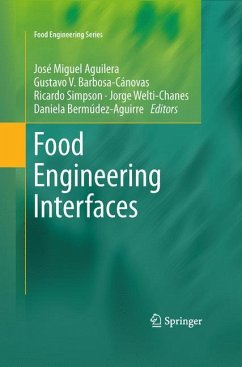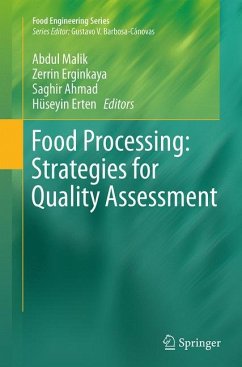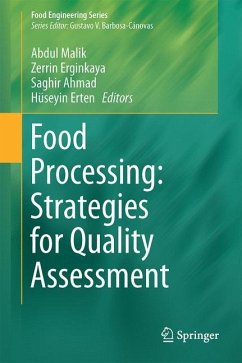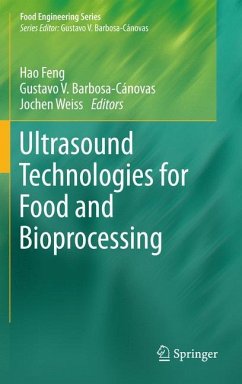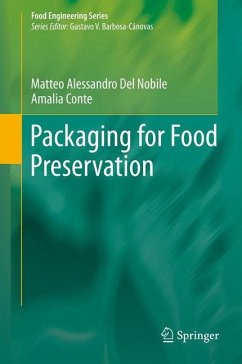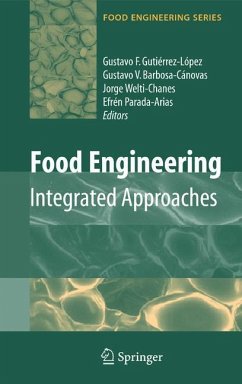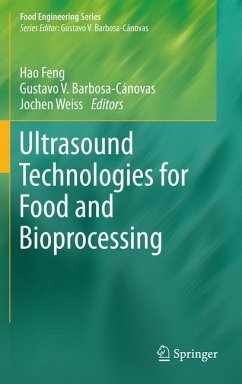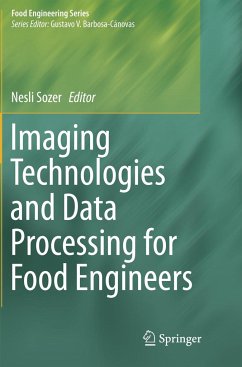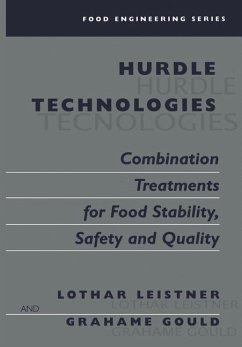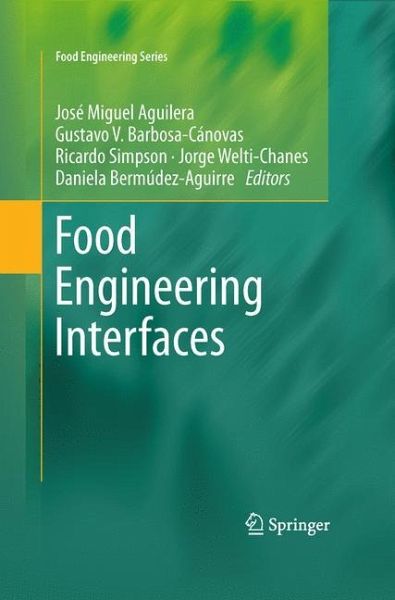
Food Engineering Interfaces

PAYBACK Punkte
76 °P sammeln!
Food Engineering Interfaces is based on invited presentations from the 10th International Congress on Engineering and Food (ICEF 10) held in Viña del Mar, Chile in April 2008. Published as part of Springer's Food Engineering Series, the book includes 28 chapters contributed by world leaders in food engineering and related disciplines. Topics include the food engineering world through the years, advanced thermal and nonthermal processing of food, the modeling of gastric digestion, applications of CFD in food processing, food safety engineering, food engineering economics, incorporation of fibers into foods, bioseparation of nutraceuticals, supercritical fluid extraction of essential oils, caking of food powders, advances in food microstructure analysis, and food packaging.
Aimed at the food industry and academia, this book is an excellent resource for anyone interested in the state of the art and the upcoming developments in food engineering, where health and well-being are central.
Aimed at the food industry and academia, this book is an excellent resource for anyone interested in the state of the art and the upcoming developments in food engineering, where health and well-being are central.
The International Conference on Food Engineering is held every four years and draws global participation. ICEF 10 will be held in April 2008 in Chile with the theme of food engineering at interfaces. This will not be a typical proceedings with uneven contributions. Papers will be solicited from each plenary speaker plus two or three invited speakers from each topic and the goal is to publish a book that conveys the interdisciplinary spirit of the meeting as well as covers the topics in depth, creating a strong reference work.The idea is to explore how food engineers have to be prepared in years ahead not only to perform in their normal activities but also to engage in new challenges and opportunities that will make the profession more attractive, responsive, and able to create a larger impact. These challenges and opportunities are within the profession and at interfaces with other areas. A major role of engineers is to incorporate new knowledge into the profession and respond topractical needs. The goal is to explore how food engineers are integrating developments in the basic sciences of physics and chemistry, nutrition, informatics, material sciences, genomics (and other -omics), quality and safety, consumer behavior and gastronomy. Interfaces with the environment, the business sector, regulations and export markets are also important to consider.





